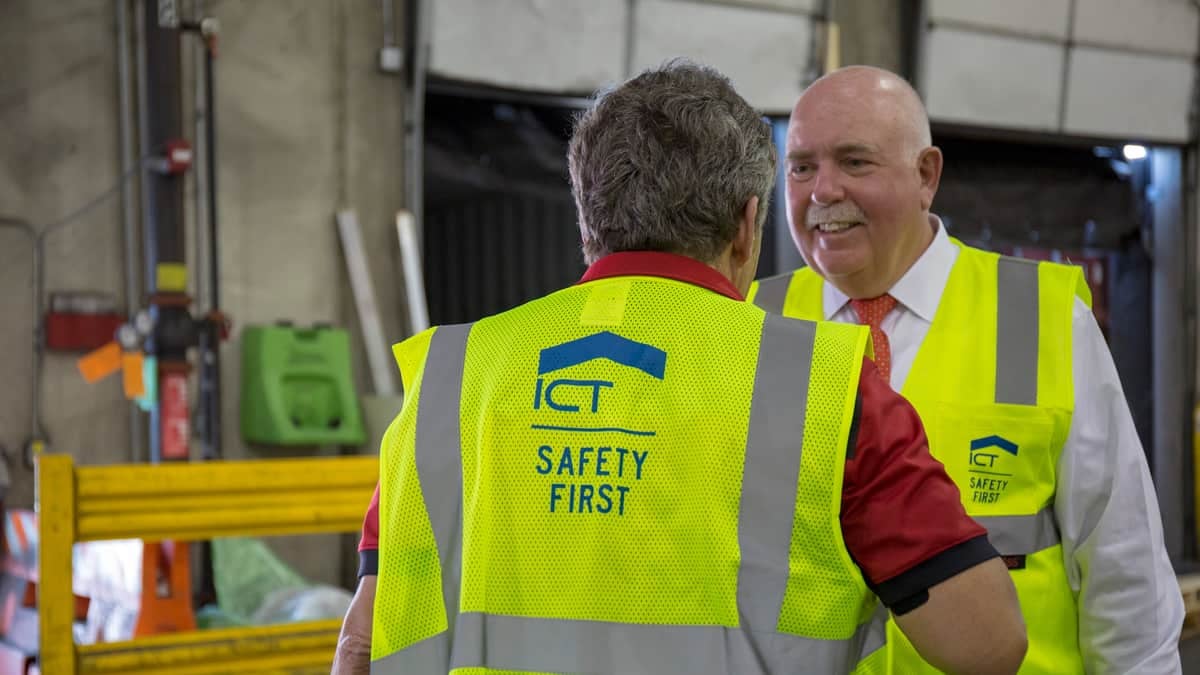Major ocean freight consolidators in the U.S. market see no shortage in demand for expedited less-than-container load (LCL) service requests from freight forwarders during the ongoing global pandemic.
These services promise roughly 12-day port-to-port transits between China’s dominant seaports and Los Angeles and Long Beach in Southern California, compared to mostly standard, monthlong ocean transits for eastbound, trans-Pacific container traffic.
Although expedited LCL services are three to four times more expensive per cubic meter of freight than traditional LCL, they offer airfreight shippers that are currently pinched for capacity and seeing higher-than-normal air transport rates due to the coronavirus pandemic a rate that is two-thirds of three-fourths cheaper, if extra days can be allowed in the transit.
“We have seen a significant uptick in volume on these services in recent months,” Niels Nielsen, executive vice president in the U.S. for Hoboken, New Jersey-based Shipco Transport, told American Shipper. “Yes, there’s a premium for utilizing such carriers, but with reduced transit times and faster availability at the U.S. terminal — and especially when compared to airfreight alternatives — that premium can be justified.”
Starting in early March, trans-Pacific ocean carriers calling U.S. West Coast ports began canceling sailings to offset the dramatic drop in import containers caused by a sudden steep decline in consumer spending and manufacturing resulting from the COVID-19 pandemic.
Some trans-Pacific liner carriers, especially those U.S.-flag and foreign-flag operators independent of the major alliances, have stuck to their sailing schedules between China and the West Coast, even during the worst of the pandemic. These include U.S.-flag carriers Matson Navigation and APL, and foreign-flag operators ZIM and Evergreen.
In March, ECU Worldwide, a large ocean freight consolidator, started an LCL express service, XLERATE, in partnership with Matson from Shanghai and Ningbo to more than a dozen container freight stations (CFS) throughout the U.S. via the Port of Los Angeles.
Last month, the consolidator further expanded this expedited LCL service by using ZIM’s “ZEX” vessel service, which operates between China’s Shenzhen and Guangzhou ports and Los Angeles.
Rapid terminal gate outs

Both Matson and ZIM provide container chassis at their Port of Los Angeles terminals, ensuring fast terminal gate exit for the boxes and avoiding delays associated with chassis shortages, ECU said.
The consolidator has been able to consistently retrieve inbound LCL boxes from the carriers’ terminals in as little as eight hours after vessel arrival.
Spencer Strader, ECU’s director of imports based in Miami, said the performance inside the U.S. discharging terminal must be consistent and reliable for a consolidator to offer forwarders expedited LCL services.
“If the vessel transit time port to port is as fast as a Matson or ZIM ZEX, but after the vessel arrives it takes four days to schedule an appointment to pick up the container, then any gain from the fast port-to-port transit was really pointless,” Strader said.
“That quick gate out service needs to be reliable,” he added. “If you offer a service to pick up the container from the terminal in 24 hours, then that consistency has got to be very close to 100%.”
When full container loads are too much
Forwarders tend to become more interested in LCL services whenever the global economy is disrupted and import volumes diminish.
“With the trend continuing to be a need to keep inventory at a minimum, it naturally follows that shipments are smaller, and with stocks minimized, new shipments have even more urgency than in the past,” said Robert Zorzi, Shipco’s U.S. president and chief operating officer for the Americas. “This is where LCL presents significant advantages.”
Zorzi added that with less demand from shippers in general, forwarders are increasingly turning away from their own consolidated containers in some trade lanes to co-load with “neutral” consolidators, like Shipco.

Michael Troy II, vice president of sales for Red Bank, New Jersey-based consolidator Troy Container Line, told American Shipper that forwarders and their shippers are increasingly drawn to LCL once they understand the cost differential with a full 20-foot or 40-foot container rate.
“In today’s transparent market, we are offering a single all-in rate from origin to destination charges,” he said. “This allows shippers to see a clear breakeven point between loading out as FCL [full container load] or LCL.
“With rates as volatile as they have been over the last six weeks, it is important for shippers to have this clear costing to make a decision on a transactional basis from week to week instead of being committed to LCL or FCL as they would normally be in a stable rate market,” Troy said.
LCL rising
Klaus Jepsen, Shipco’s Group CEO, said traditional LCL services will always have a purpose in ocean transport.
“The benefits of LCL are consistent — predictability in service and cost being key,” Jepsen said. “Shipco continues to build on its direct service portfolio, offering more and more niche services, precluding extra handling of freight and improving transit times which provide that all-important speed to market.”

However, the big question for many consolidators and their forwarder customers is the long-term viability of expedited LCL services, particularly after the coronavirus pandemic subsides.
Carmen Gerace, chief transportation officer of BDP Transport, the non-vessel-operating common carrier (NVOCC) of Philadelphia-based forwarder BDP International, said shipper interest in expedited LCL services will continue if airfreight capacity remains tight and rates are high.
BDP Transport, which works with both ocean carriers and neutral freight consolidators, has marketed the expedited LCL services mostly to its airfreight customers. “When air freight gets back to normal, I don’t think these services will last due to higher cost over regular LCL services,” he said.
“I think the schedule stability and pricing, both on the water and to expedite these movements domestically upon arrival, will continue to dictate how successful these services are long term,” Troy said.
ECU’s Strader believes expedited LCL services will remain strong through the rest of the year and early next, especially with the prospect of a COVID-19 vaccine and related support equipment requiring nearly all available commercial airlift worldwide.
Related news
Pandemic prompts DHL to beef up expedited LCL services
More air cargo finds its sea legs during COVID-19
Ocean freight consolidators turn on LCL relief valve
Click for FreightWaves/American Shipper articles by Chris Gillis.







